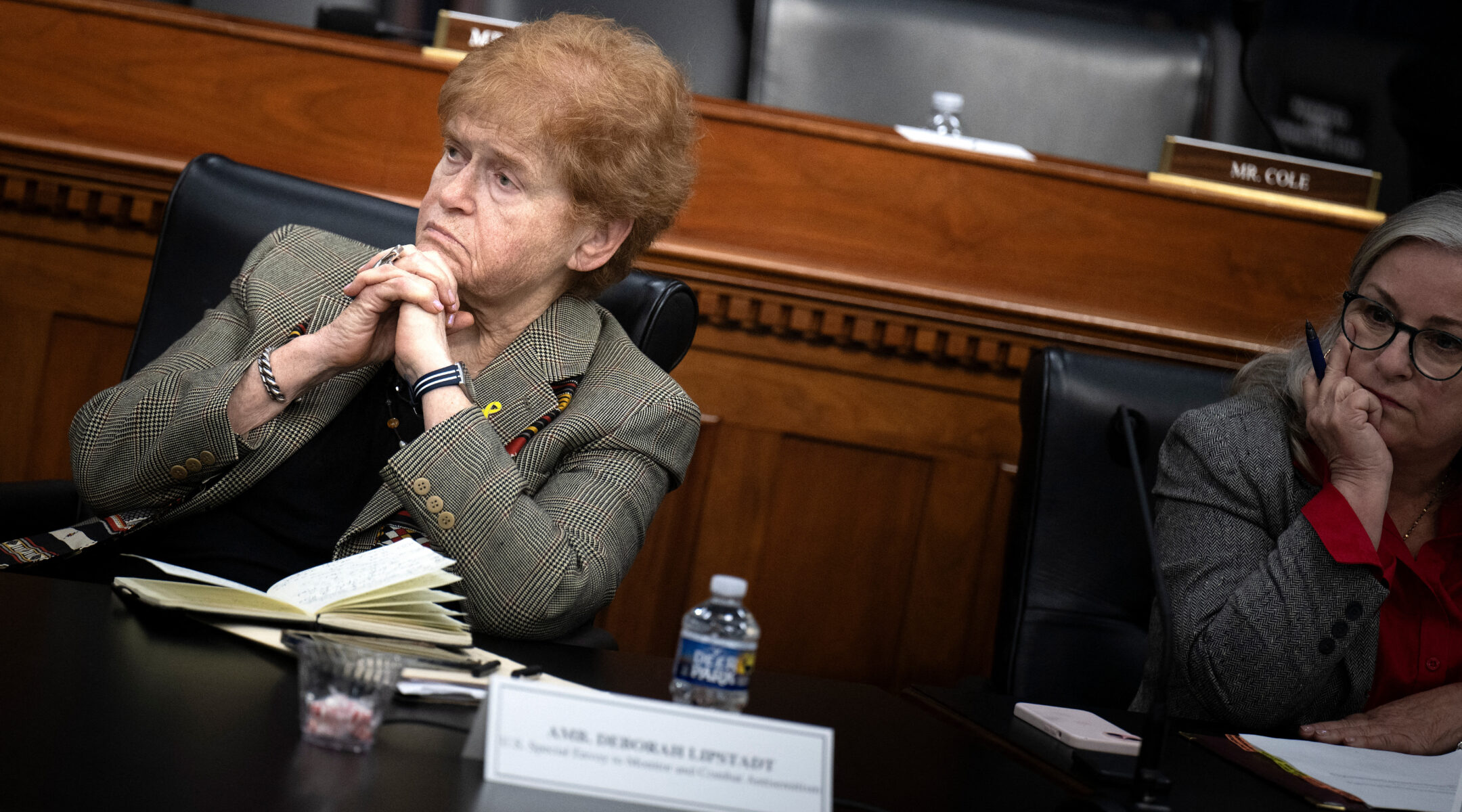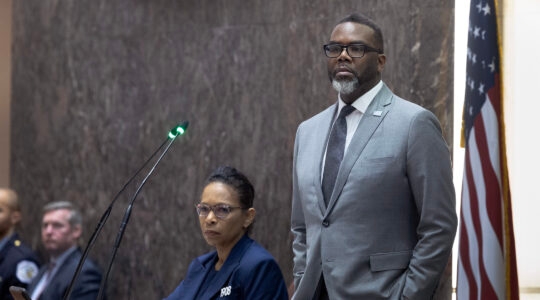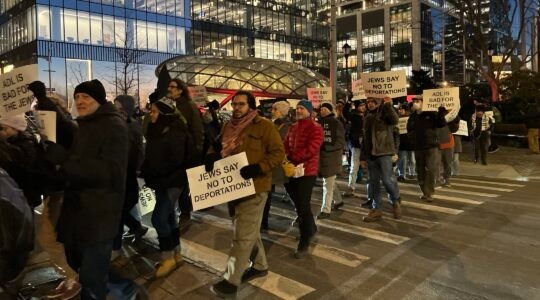Deborah Lipstadt, President Joe Biden’s antisemitism envoy, says parts of the Trump administration’s crackdown on campus antisemitism have “gone way too far.”
In an interview, she declined to comment on specific cases that have unfolded since the White House began cracking down on pro-Palestinian student activists. But she denounced the conditions under which some of the arrests have taken place.
“I think it’s wrong, absolutely wrong and contrary to American due process, to just pick someone up off the street, to not accord them all the legal steps to which they may be eligible to get,” she said. (The description accords most closely to the case of Rumesya Ozturk, a graduate student who co-authored a student newspaper op-ed criticizing Israel and was arrested on a street near the Tufts University campus.)
Lipstadt, a prominent Holocaust scholar, has praised some of Trump’s actions on antisemitism in other interviews. Those comments were significant both because of her professional focus and because she was one of the Biden White House’s key voices on fighting antisemitism, as well as an emphatic critic of Trump — particularly in 2020, when she endorsed a campaign ad likening his rise to that of Nazism.
Speaking to the Jewish Telegraphic Agency this week, she repeated some of that praise. But she also accused Trump of “weaponizing” antisemitism for political ends.
“I see both a seriousness taking antisemitism seriously, as did the Biden-Harris administration, but I also see a potential weaponizing, politicizing of antisemitism,” she said. “What I’m afraid of is that it’s being turned into a partisan issue, that it’s being used in certain cases, not everywhere, but in certain cases, as a foil for other objectives.”
In recent interviews in The Forward and The New Yorker, Lipstadt spoke positively of the Trump administration’s campus actions, which officials have framed as combating antisemitism. The administration’s campaign includes a string of multi-billion dollar funding cuts and arrests of pro-Palestinian students. The administration has also revoked more than 1,200 student visas, according to the Associated Press.
“I’m not opposed to the administration rescinding the student visas of some of the people that they’re rescinding the student visas of,” she told The Forward. “To depict some of these people as martyrs and heroes is ludicrous.”
She added, “I don’t oppose many of the things that are being done. I just wish they would be done more deftly.”
Speaking to the New Yorker, she repeated some of the same sentiments, saying, “A lot of people were relieved to see this forceful approach.” She also asked whether the administration’s power “is being used properly or not,” which “raises certain questions about what’s happening.”
Those comments follow statements from many Jewish leaders who have critiqued or condemned the administration’s funding cuts and campus arrests. Concern has also come from pro-Israel Jewish groups that have emphasized the threat of campus antisemitism, such as Hillel International and the American Jewish Committee.
Lipstadt clarified to JTA that while she feels schools should have done more to fight antisemitism before the Trump crackdown, she now believes there’s been an “overreaction” from the White House.
“I think universities just were often deleterious, and that was the message I was trying to get through” in speaking to the New Yorker, she said. “I won’t engage in a blanket condemnation of the Trump administration, because I think that some of the early steps it took were right in terms of campus, etc. I’m afraid now that it’s gone way too far.”
As the State Department envoy to monitor and combat antisemitism, Lipstadt frequently spoke out about antisemitism globally and in the United States, and worked on the administration’s national strategy to combat antisemitism. In her final weeks in the job, Lipstadt expressed doubts about whether the Trump administration could effectively combat antisemitism.
Earlier this month, Trump tapped Yehuda Kaploun, a Miami businessman and close ally of his, to fill the special envoy position. Lipstadt said in the New Yorker that she spoke with Kaploun and found that he seemed to “really care about this deeply and genuinely.”
Several of the Jewish statements criticizing Trump’s campus actions have said that targeting civil liberties and seeking to deport students over protesting Israel could make Jewish students less safe. Trump’s Jewish critics have also pointed to other events during the three months he’s been in office, including his partnership with Elon Musk, who endorsed a far-right German party and was accused of making a Nazi salute.
The administration has also taken aim at diversity programs, and some federal actions have caught Jewish issues in the crosshairs. In recent weeks, the Justice Department removed Holocaust remembrance webpages and also took down a display honoring Jewish female Naval Academy graduates.
Lipstadt warned against making antisemitism a partisan fight.
‘Antisemitism is a threat,” she said. “It’s a threat to Jews. It’s a threat to democracy. It’s a threat to rule of law. It’s a threat to national and international security and stability. It can’t be used — it’s too significant, it’s too important an issue to be used — as a political weapon.”
But she acknowledged that there is a risk of it becoming that way, at least in some corners.
“I think there are some voices which really take this issue very seriously and understand it and want to address it, and there are clearly some voices that see it as a very useful political tool,” she told JTA. “I’m rooting for the first group, not for the second group.”
JTA has documented Jewish history in real-time for over a century. Keep our journalism strong by joining us in supporting independent, award-winning reporting.





